From the President


Rick Throop
MSTA President
As we move into 2024, I hope that all of you had a wonderful holiday season and found the new year to be starting off well. There hasn’t been much of a winter here in Michigan so I’m sure most of you, like myself, have been capitalizing on that. I keep a close watch on the road restrictions map and it doesn’t look like that’s going to be much of a worry for a lot of us this year.
MSTA had its 3rd Annual Conference in Mount Pleasant at Soaring Eagle Casino that many of you were able to attend. We were in a much larger room that gave us plenty of space for all of our goings-on at the same time. With a total of 32 vendors, we were able to have many new vendors this year and hopefully more for next year. We also had many returning vendors that continue to support MSTA year after year. Our conference had a total of 271 attendees that were able to obtain 15 credits for the entire conference. Some vendors that I would like to mention and thank are Ashland Pump and Advance Pump and Equipment for sponsoring the Meet and Greet Reception on Monday evening and Best Enterprises and Imperial Industries for generously sponsoring portions of the Annual Banquet on Tuesday evening. Something new that we did this year was a podcast during our lunch that you can listen to or watch at https://youtu.be/YstMsXEVqSQ or search it on www. dirtbagspodcast.com. This was done by Luke Eggebraaten, cofounder of Dirt Bags Podcast, with MSTA VP Jason Spangle and Secretary Dervin Witmer joining in. A big thank you to engcon
for sponsoring this event. MSTA again had our Annual Banquet on Tuesday night where we had our auction with our amazing auctioneer Jeff Hammersmith, from Ashland Pump, who always makes things fun. As always, a big thanks to Jeff for doing that and the many people who bid on items to help support MSTA. We also did our 50-50 and had some gift card giveaways. We were all able to enjoy a good dinner with some good networking and a lot of fun.
We will also be having our Spring Meeting on April 13th as well. The meeting with be in Mason at Michigan Septic and is being hosted by MSTA board member Casey Fiedler and member Matt Gustafson.
I want to again thank all our vendors, speakers, and anyone else who helped at our conference to make it such a huge success. The Annual Conference continues to grow every year and that would not be possible without the participation of everyone involved and working together. I encourage anyone who has a topic they would like discussed or a vendor you would like to see please let any MSTA board member know or email Karlyn Wickham at executiveofficer@msta.biz and we will do what we can to have them there in February of 2025.
Lastly, I would like to thank YOU, our members, for your continued support of MSTA. Your support and friendship are what makes our association what it is today. Best of luck this year with your family, health, and business!
Thank You, Rick
Throop
MSTA President

How To Find Your State Representative And State Senator
Michigan voters approved a constitutional amendment in 2018 that created a Michigan Independent Citizens Redistricting Commission (MICRC) and vested it with the authority to adopt new district boundaries based on census data for the Michigan Senate, Michigan House of Representatives, and U.S. House of Representatives every 10 years beginning in 2021. Using the 2020 Federal Census data, the MICRC redrafted the boundaries of Michigan’s state house and senate districts. As a result, there have been significant changes in the district number you live in and who is your state representative and senator following the November 2022 election.
The Michigan House of Representatives and Michigan Senate websites have search engines where you can input your street address, city and zip code to find your state elected official.
To Find Your State Representative Go To:
https://www.house.mi.gov/#findarepresentative
To Find Your State Senator Go To: https://senate.michigan.gov/FindYourSenator
Maps of all Michigan House and Senate Districts can be found the MICRC website: https://www.michigan.gov/micrc
























Thank You 2024 MSTA Annual Conference Vendors
(IN NO PARTICULAR ORDER)
Meet your 2020 MSTA Board of Directors
A RESTROOM TRAILER COMPANY (ART COMPANY)
ADVANCE PUMP & EQUIPMENT, INC
ALTA EQUIPMENT COMPANY
ARMAL, INC.
ASHLAND PUMP
ATS FLEET SERVICE
BEST ENTERPRISES
DCD
President Vice President
Meet your 2024 MSTA Board of Directors
Rick Throop
Rodrigo Meirelles
EMC INSURANCE COMPANY
President
Woods-Utica Septic Service
Secretary
Jason Spangle
Rick Throop, Woods-Utica Septic Service
Williams and Bay Pumping Services
Treasurer
Dave Snyder Esch Septic Service, LLC
Vice President
Directors
Ralph Bailey
Jason Spangle, Esch Septic Service
Ray Daniels, Daniel’s Septic Service
Secretary
Ken Goike, Goike Trucking
GENERAL AGENCY COMPANY
GILBERT SALES & SERVICE, INC
GOLDEN CIRCLE ADVISORS, INC.
West MI Septic Sewer/Drain Service
IMPERIAL INDUSTRIES INC
INFILTRATOR WATER TECHNOLOGIES
J&J PORTABLE SANITATION PRODUCTS, LLC
MARCONE PLUMBING/ TA GENTRY
Stephanie Powell, Portable Toilet Services, LLC
Randy Redmer, Michigan Waste and Environmental Services
Dervin Witmer, Dig-It Excavating
MI CENTER FOR TRUCK SAFETY
MICHIGAN CAT / MACALLISTER HYDROVAC
Tom Schunk, County Wide Septic, LLC
Treasurer
Chris Sloan, Sloan’s Septic Tank Service, LLC
MSTA Executive Officer
Tom Schunk, County Wide Septic LLC
Karlyn Wickham
Directors
MSTA Assistant
Ryan Carey, Sodergren Septic
MICHIGAN SAVES, INC
MILAN SUPPLY/VALLEY FARMS
MINICAM USA
NATIONAL VACUUM EQUIPMENT
ODOR ONE COMPOSTING SOLUTIONS, LLC.
Casey Fiedler, Michigan Well & Septic Inspections
Julie Kreh, DJ’s Toilets & Septic Service, LLC
MSTA Legislative Consultant
Judy Augenstein
Lynden Johncock, Williams and Bay Pumping Services
Danielle Gerdes, Scott’s Excavating
Randy Redmer, Michigan Waste and Environmental Services
Chris Sloan, Sloan’s Septic Tank Service
Tim VanRhee, Kerkstra Septic Tank Cleaning
POLYJOHN
POLYLOK
ROTH NORTH AMERICA
SALES SERVICE PLUS
SATELLITE INDUSTRIES
SERVICECORE
SIM/TECH
SOUTHEASTERN EQUIPMENT COMPANY
WATERCORE LLC



A Day at the Beach
Tiny cottage lot with impossible setback issues spurs a training day featuring an aerobic treatment solution
By David Steinkraus
The homeowner on Lake Cora near Paw Paw, Michigan, was not in a good situation.
“He had been running quite a few years on holding tanks,” says Dervin Witmer, owner of Dig-It Excavating in Cassopolis, Michigan, who was hired to create an onsite system for the house.
The owner had purchased the home and then realized frequent holding tank pumping was not what he wanted. Local health officials told him that was his only option, Witmer says. “According to code, that’s all they could do because they were thinking traditional system.”
The job site near Paw Paw, Michigan, needed a different approach because of proximity to the lakeshore and to a neighboring property. A SludgeHammer unit combined with a Geoflow dripfield solved the problem. (Photos courtesy Lucian Witmer, Dig-It Excavating)
Local code says an onsite system must be at least 50 feet from a lake and 10 feet from property lines, but on this parcel a new system would be 15 feet from the water and 3 feet from the boundary, he says. “Plus, he even had a well on the property, but thankfully the well was over in one corner, so he had a lot of beach area available.”
The system
Installing the system consisted of refitting a pair of 1,000-gallon holding tanks to provide treatment and installing a drip system to disperse effluent.
Wastewater exits the house in a 4-inch PVC pipe and enters the first 1,000-gallon tank, which contains a SludgeHammer S46 aerobic treatment unit. A baffle and a short pipe connects the first tank to the second 1,000-gallon tank.
This second tank provides equalization and acts as a clarifier. On its outlet is a Sim/Tech pleated gravity filter. This protects the 1/3 horsepower Myers pump inside a 100-gallon fiberglass pump vault that was added to the train. A Sim/Tech pressure filter, with 600-micron sock after the pump, screens effluent heading to the dripfield.












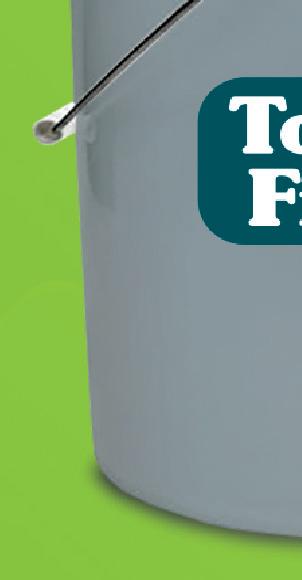












From the dosing tank, effluent flows to a 750-square-foot bed holding about 700 linear feet of Geoflow dripline. The L-shaped bed bends around the house. One section is about 60 feet long, the other is 30, and the bed is about 8 feet wide.
The Geoflow product is not the usual dripline for clear water but is designed to prevent fouling from bacterial growth, Witmer says. This product also has emitters engineered for effluent and has an herbicidal liner to discourage root intrusion.
An SJE Rhombus panel controls the system. Risers and lids were replaced with Dig-It’s custom branded products from RomoTech.
To do the job, technicians used a 2020 Caterpillar 306CR mini-excavator fitted with an Engcon EC206 tiltrotator, a 2018 Cat 299D3 track loader and a Harley Rake to finish the topsoil.
Lobbying for technology
The first challenge in doing this project was using the SludgeHammer technology. Local health officials were unfamiliar with it, so Witmer says he turned the project into an educational demonstration.
Witmer knows the sanitarian who oversees the local health department. “I explained the SludgeHammer system to him and the idea that up north, around Traverse Bay and Traverse City (near SludgeHammer headquarters), they’re permitting these a lot closer because the final effluent is so clean.”
The official later called back and said he would allow SludgeHammer in the county, but not for the property Witmer was working at. The sanitarian said this project would have to go through a board of appeals because a code change was involved. A Zoom meeting was set up with the board of appeals bringing in system designer Justin Sorenson and Dan Wickham, the Ph.D. biologist who invented SludgeHammer. Wickham gave board members copies of the plan and test results from other systems.
“And I said, ‘Hey, guys, listen. We’re in the 21st century. People will continue to build houses on these lakes with small lots if they have options. We have dirty lakes. We want to clean up our lakes. The final effluent that we’re putting on the ground is cleaner than most inland lakes,’” Witmer says.
The benefit of dripline is capillary action that pulls water in all directions, Witmer says. Water outflow around a dripline is spherical, not mostly down. “There were a few people on the board who were like, ‘Hey, guys, listen. You and I both know how many 55-gallon drums there are sitting
Dan Wickham, center, inventor of SludgeHammer, walks the dripfield during the educational outing for the Paw Paw
James Sanders from Dig-It Excavating lowers the SludgeHammer unit into place during the educational

System Profile
Location: Paw Paw, Michigan
Facility served: Single-family home
Designer: Sorenson Engineering, Traverse City, Michigan
Installer: Dig-It Excavating Inc., Cassopolis, Michigan
Type of system: SludgeHammer aerobic system with drip dispersal
Site conditions: High water, sand, limited space Hydraulic capacity: 400 gpd

“If we would encourage alternative technologies like this, that have very clean effluent, you’re only going to come up with cleaner lakes as a result.”
Dervin Witmer
around putting sewage right into lakes. This guy wants to do something that’s environmentally responsible,’” Witmer recalls. Approval came the same day.
Working on the plan with Sorenson and the staff at SludgeHammer took a couple of months, and approval required about another month.
Onsite field day
After Witmer’s crew installed the system, and before they covered it, he invited area sanitarians, designers and other interested people to learn about it during an education day at the Dig-It shop. Wickham gave a presentation on his aerobic bacterial generator systems, and then the group of about 20 went to the lake property to see the completed installation, Witmer says.
During installation, Witmer found someone had connected an overflow line from the holding tanks to a perimeter drain around the building. “His sump pumps were running every couple of minutes,” Witmer says. “So I’m sure all the vegetation out there was caused from high bacterial levels.” Sealing the overflow line will be a huge step in cleaning the lake, he adds.
The pump vault had to be anchored because it was about a foot into the water table, he says. The vault has lips on top and bottom, so his technicians put bags of Sakrete around the bottom and then backfilled.
The dripfield was about 3.5 feet above the water table, and code requires 2 feet, he says.
Performance
Dervin Witmer, center, of Dig-It excavating, talks with a group of onsite professionals invited to look at the Paw Paw job. Because area sanitarians and others were not familiar with the SludgeHammer technology, Witmer created an educational outing when the system was in place.
The Geoflow drip tubing used in the Paw Paw project is not the tubing used for clean water. Because effluent may still have some bacteria, this tubing has a lining that prevents bacterial growth, special emitters and an herbicidal liner to discourage root intrusion.

After three months of operation the system was producing effluent with:
• BOD of 9 mg/L (NSF-40 reduction standard is 25 mg/L or less).
• TSS of 26 mg/L (NSF is 30 mg/L or less).
• Total inorganic nitrogen of 3.04 mg/L (NSF is 30 mg/L or less).
The results were great, but not unexpected because other SludgeHammer systems show similar results, Witmer says.
The health department sanitarian was quite right in saying that a lot of contaminants are going into the lake, Witmer says. “If we would encourage alternative technologies like this, that have very clean effluent, you’re only going to come up with cleaner lakes as a result.”
featured products
Geoflow, Inc.
800-828-3388 www.geoflow.com
(See ad on page 29)
Pentair 888-416-9513 www.femyers.com
Sim/Tech Filter Inc. 888-999-3290 www.simtechfilter.com
(See ad on page 38)
SJE Rhombus® 888-342-5753 www.sjerhombus.com (See ad on page 23)
SludgeHammer 231-348-5866 www.sludgehammer.net
RomoTech 574-831-6450 www.romotechplastics.com


SepticSmart Materials are available to download and print for FREE
There are challenges across the country due to improperly maintained or failing septic systems for many homeowners, local environmental groups, county health departments and local governments. EPA’s SepticSmart program aims to provide materials and resources to increase homeowner education on septic systems and promote awareness in caring for them.
SepticSmart education materials are targeted to homeowners but for use by anyone! These online resources may be downloaded, printed and shared as needed. Many of the materials are available in both English and Spanish and in some cases may be personalized by a business or local government.
Go to www.epa.gov/septic for more information about SepticSmart Week and materials you can use to help educate your customers.








Welcome New MSTA Members
Ace 1 Septic Service
Acme Septic Tank Co
Advantage Plumbing and Drain, LLC
Clyde’s septic service
Denniss Septic Tank Services
Erics Septic Service
Holm Honeywagon LLC
Hometown Septic Service LLC
NL Septic LLC
R.B. Satkowiak’s City Sewer Cleaners, Inc
Ron Meyer & Associates Excavating
Staebler Excavating LLC
Wellman Excavating
Scholarship Information for Dave Snyder and Mark Scott
As most of you know, we lost two very special people and past MSTA Board Members in late 2021. Since then, we have been working toward honoring them by donating money toward something they both would be proud of. Any money that was given to MSTA in the past, has already been forwarded to the appropriate fund for each of these men. Any future money that people want to donate cannot be sent to MSTA but rather it should go directly to the fund designated for Mark or Dave.
Mark Scott’s family already had a scholarship in the family name and the money for that scholarship is given to students in the Roscommon County going into vocational, technical, or trade school programs.
Dave Snyder’s fund is called “Seeds of Hope” and it is through the Muskegon Area Intermediate School District and will be used for developing projects for high school junior and seniors that want to purse a career in skilled trades or outdoor recreation/conservation.
Below is the information for each of these funds and where to send the money. If you have any questions about the funds, please contact the person listed below.
This information can also be found on the MSTA Website at www.msta.biz then going to RESOURCES at the top of the page and scrolling to Scholarships.
Dave’s Scholarship
Make checks payable to MAISD and on the check put a note at the bottom (Seeds of Hope – Dave Snyder” and send to:
MAISD
630 Harvey Street
Muskegon, MI 49442
Contact person: Kelsie Farkas kfarkas@muskegonisd.org (231) 767-7211
Mark’s Scholarship
Make check payable to Roscommon County Community Foundation and on the check put a note at the bottom: Scott Family Scholarship Fund
Roscommon county Community Foundation
3975 W. Federal Hwy, Suite 2
PO Box 824
Roscommon, MI 48653
The contact person for this fund is: Suzanne Luck sluck@myrccf.org (989) 275-3112


Legislative Report by Bill Lievense, Capitol Group Consultants LLC
Work Continues On Proposed Septic Code Legislation
Discussions continue with multiple stakeholders on legislation amending Michigan’s Public Health Code to establish a statewide septic code (HB 4479/SB279) and create an wastewater technical advisory committee (HB 4480/SB 300). The bills create a new Part 128: Onsite Wastewater Treatment Systems in the public health code. The bills change the language in the current statute from “septic tank disposal systems” to “onsite wastewater treatment systems.”
Multiple concerns with the bills have been expressed by the Department of Environment, Great Lakes & Energy (EGLE), local health departments and environmental groups. MSTA representatives have met multiple times with the primary bill sponsor, Rep. Phil Skaggs (D-East Grand Rapids). MSTA has also hosted multiple tours of septic installation sites with Mr. Skaggs. Most recently, MSTA held a meeting with key stakeholders in conjunction with the MSTA annual meeting in Mt. Pleasant. Attending the meeting was Rep. Carrie Rheingans; sponsor of the technical advisory committee bill HB 4480.
Third drafts of both bills (HB 4479/HB 4480) are now under discussion. Key changes have been made to the bills as originally introduced. Key issues continue to center around the definition of system failure/non-conformance, frequency of inspections, inspector certification, local health department staffing & funding, available waste disposal capacity and financing assistance mechanisms for system repairs or replacements.
Legislature Reconvenes With Split House/Court Orders New District Boundaries Set Before Special Elections
The Michigan Legislature reconvened on January 10th for the second half of the 2023-2024 session. As a result of the departure of two House members who successfully ran for local mayoral seats, Democrats will temporarily lose their 56-54 majority in the Michigan House of Representatives. The House will be at a 54 Democrt-54 Republican split until special elections can be held to replace the members. This means no major movement of partisan bills by Democrats can be done until the seats are filled. While both seats are expected to again be held by Democrats, the seats are not expected to be filled until late April due to a court ruling invalidating the current House legislative district maps in those and several other districts. See below.
Court Invalidates MICRC House & Senate District Maps
A federal panel has ruled the Michigan Independent Citizens Redistricting Commission violated the Equal Protection Clause of the Constitution for citizens in the Detroit area in its drafting of boundaries of several Michigan House Districts (1,3,6,8,10,11) and six Senate Districts. The court ordered remedy was for the MICRC to submit a revised map by February 2nd. No special elections can be held to replace departed House members until the maps are submitted and approved. The remapping will also impact several districts in the upcoming November 2024 election for the full Michigan House.
Governor Launches New MILEAP Department
Governor Whitmer announced she is creating a new Department of Lifelong Education, Advancement & Potential. The new department, established by executive order in July, is tasked with improving outcomes from preschool through postsecondary so anyone can ‘make it in Michigan’ with a solid education and a path to a good-paying job. The new department will take over several early learning, higher education, and education partnership responsibilities from other state departments. The department will have three offices within it: the Office of Early Childhood Education, Office of Higher Education and Office of Education Partnerships. MiLEAP’s new website is www.michigan.gov/mileap
Growing Michigan Together Council Issues Report
The Growing Michigan Together Council was established by Governor Gretchen Whitmer under Executive Order 2023-4 in June 2023 to develop a long-term vision that addresses current and future challenges and sets Michigan up for success in the 21st Century. The Council was charged with advising the governor on specific policies to grow Michigan’s population, including identifying a population goal for 2050. It was also to look at ways to successfully attract and retain talent, improve preK-12 educational outcomes and long-term funding solutions for higher education, and develop strategies for upgrading and modernizing our transportation and water infrastructure, including developing long-term, sustainable funding solutions. The Council was directed to present its findings in December 2023 in a report to the governor, the Michigan House of Representatives, and the Michigan Senate.
Council On Future Mobility Issues Report/Recommendations
The Michigan Council on Future Mobility and Electrification has announced it has released its 2023 Annual Report recommended policy changes. Resolutions adopted by the council in the report include: EV Charging Stations, Hydrogen, Enhanced Roadway Safety, Intelligent Transportation System Assets, ACM EV Charging Testing and Investment Capital For Startups. See the report for details.











Comprehensive Energy Package Enacted
The package of energy bills implementing the Governor’s MI Healthy Climate Plan has cleared both the House & Senate on straight party line votes with Republicans unanimous in their opposition. The bills have been signed by the Governor and will become law in 2024. The bills include SB 27, SB 273, and SB 502.
SB 271 (H-5) sets “rates and dates” for the implementation of both “renewable energy credit” and “clean energy” utility portfolio standards. The bill provides for a 2-year offramp from meeting the requirements upon a showing of “good cause.” See Senate Fiscal Agency Summary Effective date February 27, 2024. Final version as enacted PA 235 of 2023
SB 273 (H-2) sets “energy waste reduction” (EWR) goals and provides for utility financial incentives. Directs a portion of EWR funds to lowincome participants. See Summary. Effective date February 13, 2024. Final version as enacted PA 229 of 2023
SB 502 (H-6) provides revised criteria and process for the approval of utility “integrated resource plans” which dictate their planned investments over the next five years. Additionally, the bill provides enhanced funding for the Utility Consumer Representation Fund, revised financial incentives for selected utilities, revenue decoupling for selected utilities, a quadrennial review proceeding to assess enhanced electrification and identify environmental justice communities, development of net metering tariffs and enhanced public engagement. See Senate Fiscal Agency summary. Effective date February 13, 2024. Final version as enacted PA 231 of 2023
Governor Signs Legislation Allowing MPSC Preemption Over Local Zoning For Renewable Projects/Group Announces Ballot Initiative To Repeal New Law
Legislation (HB 5120 S-4) and HB 5121 S-1) allowing the Michigan Public Service Commission (MPSC) to override local zoning regulations in the granting of certificates for renewable energy projects has been signed into law by the Governor. Local units of government could not enact local zoning ordinances that conflict with the provisions of a new Part 8 of the Clean and Renewable Energy and Waste Reduction Act. The bills were amended to provide local units with a greater voice in project siting, but ultimately the MPSC will have the final say if a project meets the Part 8 criteria despite any local objection. See Senate Fiscal Agency summary of the bills. Effective date November 29, 2023. Final version of HB 5120 as enacted PA 233 of 2023. Effective date February 13, 2024.Final version of HB 5121 as enacted PA 234 of 2023.
Opponents of the new law, Citizens For Local Choice, have initiated a ballot petition drive for the November 2024 ballot to repeal the new law. To be successful, petitioners would need to collect 356,958 signatures by May 29th to put the measure on the ballot. Local units of government were strongly opposed to the new law and prospects for the measure to be placed on the November 2024 ballot are very strong.
Democrats To Promote “Polluter Pay” Legislative Package in 2024
Identical seven-bill “polluter pay” packages were introduced in the House and Senate this/last week. The House bills have been referred to the House Natural Resources, Environment, Tourism and Outdoor Recreation Committee. The Senate bills have been referred to the Senate Energy and Environment Committee. Senator Irwin and Representative Morgan, who are spearheading the legislation, indicated that they are working toward hearings on the bills in the Spring.
SB 605 (Irwin)/HB 5247 (Koleszar) would add reporting requirements to EGLE regarding cleanups and contaminated sites.
SB 606 (Moss)/HB 5242 (Morgan) would require cleanup to the highest standard technically feasible.
SB 607 (Chang)/HB 5245 (Arbit) would allow EGLE to set cleanup criteria without rulemaking.
SB 608 (Geiss)/HB 5246 (Tsernoglou) would require companies using hazardous materials to post up-front financial assurance to cover any cleanup.
SB 609 (McCann)/HB 5243 (Neeley) would adjust the statute of limitations and allow the state to bring claims on behalf of the public to cover cleanup costs for contaminants of emerging concern.
SB 610 (Shink)/HB 5241 (McKinney) would allow people exposed to hazardous substances to bring a claim to cover the costs of medical monitoring.
SB 611 (McMorrow)/HB 5244 (Skaggs) would adjust the statute of limitations to begin when a person discovers a claim.
Oral Arguments Held On “Adopt & Amend” Case Impacting Paid Sick Leave
On January 26, 2023 the Michigan Court of Appeals reversed the Court of Claims and affirmed the legislature’s ability to “adopt & amend” two 2018 ballot proposals which would have imposed onerous minimum wage and mandated employee sick leave requirements on all employers. The ruling permits the existing amended law to remain in place for now. This matter has been appealed to the Michigan Supreme Court for final adjudication and the Supreme Court heard oral arguments the first week in December.
Court of Claims Upholds One Year Income Tax Cut
Under a 2015 law, if state revenues exceeded a certain percentage, the income tax rate would be reduced by .20%. The Attorney General has opined, and Michigan Court of Claims has ruled that the reduction in the state income tax from 4.25% to 4.05% is only effective for one year, despite claims by Republicans the language in the law was meant to make the tax cut permanent unless increased by a vote of the Legislature.
(continued from page 21) COPYRIGHT 2023 CAPITOL GROUP CONSULTANTS LLC
(continued on page 24)
(continued from page 23)
Legislation Seeks To Revise Economic Development Incentive Programs Stalls
Legislation (HB 5095, HB 5104, HB 5105, HB 5106, HB 5107) to rename the Strategic Outreach & Attraction Reserve (SOAR) Fund the “Make It In Michigan” Fund and revise the awarding of incentives to add community benefits has cleared the House. The Critical Industry program, the Strategic Site Readiness program, and the Michigan 360 program would be considered the three “Make it in Michigan” programs.
A similar package in the Senate (SB 559, SB 560, 561, 562, 569) cleared the Senate Economic & Community Development Committee.
R&D Tax Credit Legislation Advances
Legislation (HB 5099, HB 5102,HB 5101, HB 4368) to create a Research & Development Tax Credit has cleared the Michigan House of Representatives. House Bill 5099 would add a new chapter to the Michigan Strategic Fund Act to authorize the Michigan Strategic Fund (MSF) to create and operate a research and development tax credit for certain authorized businesses. The MSF would determine the amount and duration of the credit in consideration of the applicable amounts and limitations established under the Income Tax Act, 1 although it could not award more than $100.0 million in credits in a single calendar year, and at least $25.0 million of that annual cap would be reserved for eligible businesses with fewer than 250 employees (to the extent that those businesses apply for the credit). House Bill 5100 would amend the Income Tax Act to provide an income tax credit for businesses with at least 250 employees for certain expenditures incurred in Michigan for projects with the potential for significant technological advancements, job creation, and positive economic impact. House Bill 5101 would amend the Income Tax Act to provide an individual and corporate income tax credit for businesses with fewer than 250 employees for certain expenditures incurred in Michigan for projects with the potential for significant technological advancements, job creation, and positive economic impact. House Bill 5102 would amend the Income Tax Act to provide an additional individual and corporate income tax credit for research and development projects that collaborate with Michigan’s research universities. HB 4368 provides the definitions of “authorized businesses” and “qualifying research and development expenses.
Senate Committee Reports “Good Jobs” Bills
The Good Jobs for Michigan Program was an economic development tool that sought to create new jobs in the State. It was created in 2017 and sunset in 2019. A package of bills (SB 579-SB 581) has been introduced to amend the Michigan Strategic Fund Act to rename the Good Jobs for Michigan Program as the High-wage Incentive for Regional Employment in (HIRE) Michigan Program. It also modifies the requirements for certified new jobs under the Program, the requirements that a business would have to meet to be considered as eligible for the HIRE Program, modify the considerations of the Michigan Strategic Fund (MSF) in determining the maximum amount and duration of the withholding tax capture revenues authorized, increase, from $200.0 million in total to $100.0 million annually, the amount of total withholding tax capture revenue the MSF could commit, and allow any uncommitted revenue to be committed in subsequent years, eliminate the cap on written agreements the MSF could execute each year and prohibit the MSF from designating an authorized business or entering a new written agreement on or after eight years after the bill’s effective date. The package has been favorably reported to the Senate floor by the Senate Economic & Community Development Committee.
Bill To Allow Water Rules
Legislation (HB 5205) has been introduced to amend section 3103 of the Natural Resources and Environmental Protection Act (NREPA) to remove a prohibition on the Department of Environment, Great Lakes, and Energy (EGLE) from promulgating rules under Part 31 of NREPA (Water Resources Protection) that are not specifically authorized in statute. (See Summary). A hearing was scheduled for mid-January but then subsequently cancelled. Business interests strongly oppose providing rulemaking authority.
MPSC Approves Siting For Line 5 Tunnel
The Michigan Public Service Commission announced its decision to approve a siting application by Enbridge for a proposed replacement of Line 5 from the lake bottom to a tunnel under the lake. Environmental groups, tribes and the Attorney General all opposed the decision.
MPSC Approves$368 Million DTE Energy Electric Rate Increase
The MPSC announced it has approved a $368 million increase in electric rates which was a reduction from the original ask of $622 million. Case U-21297. The new rates took effect December 15, 2023.
EGLE Directs Counties To Work On Sustainable Materials Plans
The Michigan Department of Environment, Great Lakes & Energy (EGLE) director Phil Roos is calling on counties to prepare for the development of materials management plans required under recently enacted amendments to Michigan’s solid waste management law Part 115 of the Natural Resources & Environmental Protection Act (NREPA). See press release. EGLE will be updating items on the Materials Management web page.
2023 MI Healthy Climate Plan Report Released
In 2020, Governor Whitmer issued Executive Directive 2020-10, which charged EGLE, through its OCE, with developing the MCHP. The MHCP committed Michigan to 100% carbon neutrality by 2050 with interim greenhouse gas emission reductions of 52% by 2030 and 26% by 2025 as compared to 2005 levels. The MHCP was released in April 2022, after extensive stakeholder engagement that included consultation with tribal governments; meetings with the Council on Climate Solutions, workgroup members, and key stakeholders; and consultation from the Michigan Advisory Council on Environmental Justice. EGLE has announced the release of the MI Healthy Climate Plan 2023 Report.
COPYRIGHT 2023 CAPITOL GROUP CONSULTANTS LLC












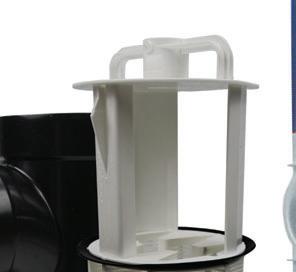
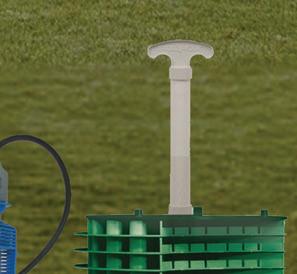










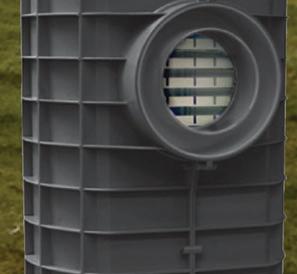










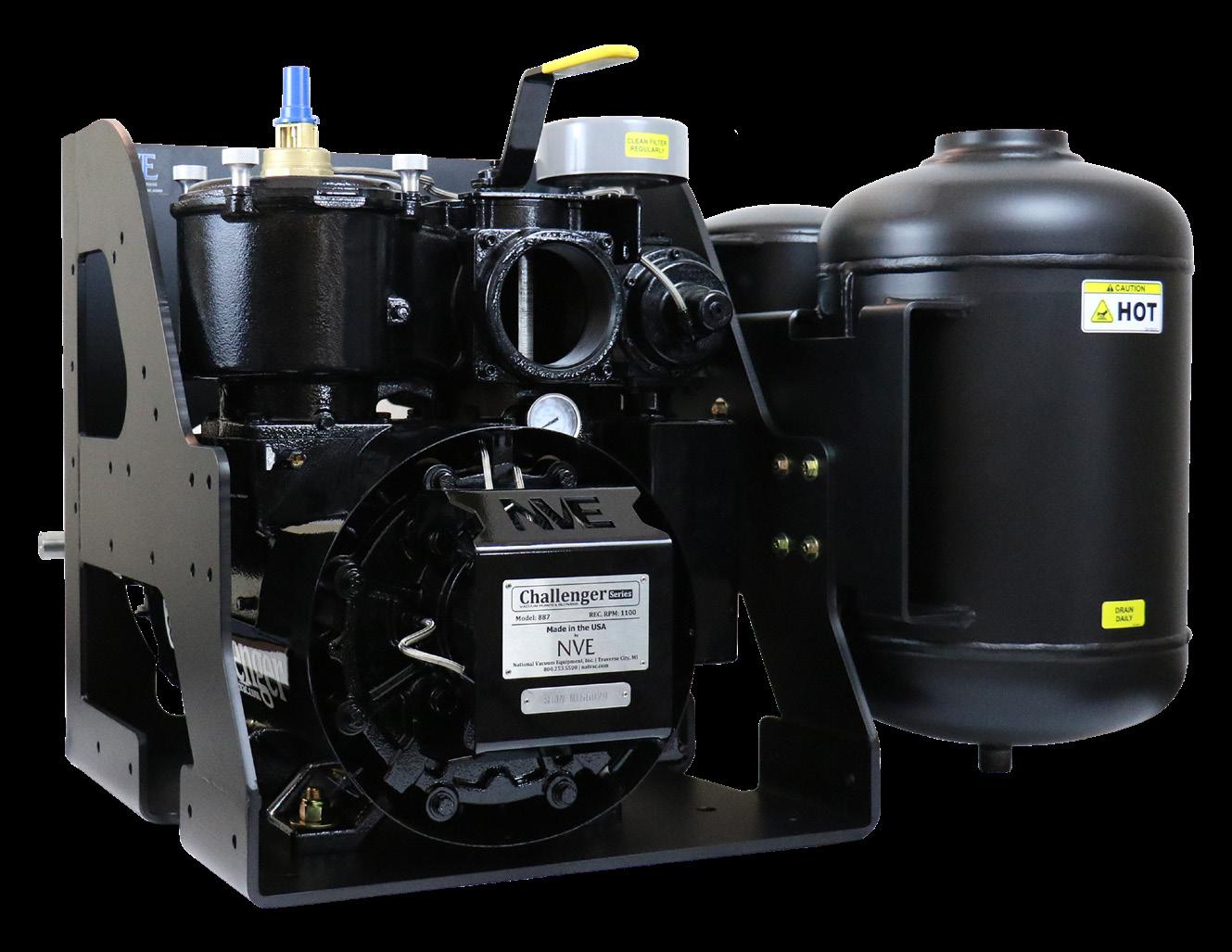







1181 LaCosta Drive
DeWitt, MI 48820
www.msta.biz

MSTA Marketing Corner
Announcing our new MSTA Facebook Page and YouTube Channel
We now have an MSTA Facebook Page, Instagram Page and YouTube Channel. These social media platforms will be your access to industry resources and event information for MSTA Members and the public. See below how you can access and subscribe to these.
Facebook Page: If you have a Facebook account, search Michigan Septic Tank Association and be sure to LIKE the page. We will be posting links and resources for our members and the public.
Instagram Page: Search for Michigan Septic Tank Association and Click FOLLOW.
YouTube Channel: From the Facebook Page you can scroll through the posts to find where you can click on the link to subscribe to our YouTube Channel. You can also go to YouTube.com or your YouTube App and search Michigan Septic Tank Association. Highlights of the 2023 MSTA Annual Conference and speaker presentations are loaded to this channel.

